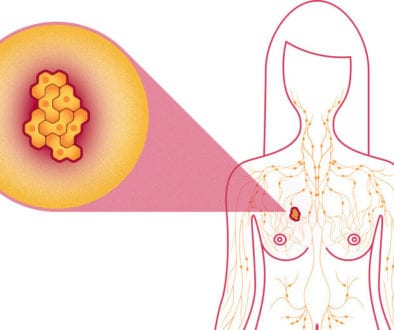Lynch syndrome
Most of the cancers are caused by heritable mutation, which is passed on to you
through your parents. If you have a familial history, you are at high risk of developing cancer.
A genetic test can provide you the accurate measures of diagnosing your risk of developing
cancer.
There are few known specific cancer correlated with hereditary colorectal cancer. The
most common type of hereditary colorectal cancer is known to be Lynch Syndrome, also
known as hereditary non-polyposis colorectal cancer (HNPCC), it is a type of hereditary
cancer syndrome that is related with a predisposition to different cancer. Though most of the
cancers are not inherited, about 5% of cases of all colorectal and/or uterine cancer have
Lynch Syndrome [1] . Lynch syndrome also increases the risk of having other cancers such as
endometrium (uterine), stomach, breast, ovarian, pancreatic, kidney, liver, small bowel
(intestinal), prostate, bile duct, and urinary tract cancers.
Indications for finding whether you have Lynch syndrome are three or more of the
closely related family member having colorectal, endometrial or other Lynch-associated
cancer, multiple generations having cancer, family member onset of cancer before age of 50
for colorectal or endometrial cancer. It is believed that there is a 50% chance of a Lynch
syndrome person to pass its mutated gene to each of their children, as Lynch syndrome do not
skip the generations [1] .
Lynch syndrome is a genetic disorder. This is caused due to specific gene mutations
that include genes such as MLH1, MSH2, MSH6, PMS2, and EPCAM, these are genes that
function for DNA mismatch repair. A mutation in any of the above genes increases a person’s
risk of developing endometrial and ovarian cancers. A particular risk for Lynch syndrome-
associated cancer depends on which gene is causing Lynch syndrome within a family.
The genetic screening test is available to diagnose the Lynch Syndrome, and any other
hereditary cancers. In order to rule out whether you are a carrier of any gene mutations
associated with Lynch syndrome, Myriad provides a genetic testing, Myriad MyRisk, which
analysis all genes associated with Lynch Syndrome, for mutations, and provides vital
information, that helps you and your health professionals make better decisions, before the
onset of the disease.
Reference:
[1] The University of Texas MD Anderson Cancer Center@2005, “Lynch Syndrome:
Hereditary Nonpolyposis Colorectal Cancer Syndrome,” Patient Edition, 2018.




